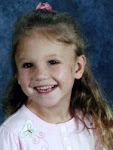Acquitted mom was supposed to serve a year's probation on check-fraud case after her release from jail
While much of the broadcast and tabloid world speculates daily on Casey Anthony's
whereabouts,
court records show that, legally, Casey Anthony should be in Orange County, serving out her sentence of one year probation.
When Circuit Judge Stan Strickland sentenced Anthony on check fraud and related charges in early 2010, he intended for her to serve a one-year probation sentence
after her release from jail.
His intent is apparent from video and a printed transcript from the Jan. 25, 2010 sentencing. That is how Strickland today says his sentence should have been interpreted.
"I have reviewed my sentencing transcript and she was to begin her probation sentencing once released," Strickland said Thursday.
Among many other restrictions, that probation would have confined Anthony to Orange County, unless she received approval by her probation officer to leave her home jurisdiction.
Officials with the state Department of Corrections were confused by Strickland's sentence, however. They contacted the Orange-Osceola State Attorney's Office and were told the probation sentence should be applied during her time in jail, according to DOC spokeswoman Gretl Plessinger.
According to the DOC, Anthony's probation was terminated on Jan. 24 — exactly one year after Strickland's sentence — while she was in jail awaiting trial in the death of her daughter Caylee Marie.
Anthony, 25, was acquitted earlier this month of the most serious charges against her, including first-degree murder. She was found guilty of four misdemeanor counts of lying to law enforcement. Early on July 17, she was released from the Orange County Jail with no restrictions whatsoever.
The handling of her probation in the check-fraud case underscores how the system largely ignored her actual sentence in that case. This is perhaps due to the mistaken assumption by many that Anthony likely would receive a lengthy prison sentence on the very serious charges she faced.
A printed transcript from the January 2010 sentencing clearly shows that Strickland intended for Anthony to be on strict probation conditions upon her release from jail.
Strickland ordered, "there's going to be a withhold [of adjudication of guilt on some of the charges], followed by a year of supervised probation, once released — again, that's an issue here."
He also gave Anthony credit for 412 days time served in jail relating to that case.
A special condition Strickland applied to the probation sentence also suggests it was meant for after Anthony's release from jail: "no personal contact direct or indirect with the victim,(of the check fraud case) Amy Huizenga."
Casey Anthony's complicated sentence involved 13 counts of check fraud, theft and fraudulent use of personal identification information involving Huizenga. Following her sentencing that day, Casey Anthony apologized to Huizenga, saying, "I wish I would have been a better friend."
Strickland explained to Anthony and her attorney Jose Baez that same day that he was withholding adjudication on seven counts against her and adjudicating her guilty on six counts.
"We can't withhold adjudication unless there's a period of probation attached to it," Strickland said at the time. "So we don't know what the future holds here. If the State's correct, there'll be a conviction and lengthy prison sentence, or worse. If the defense is correct, there will be an acquittal and she will walk free."
Immediately after that statement Strickland explained that the year of supervised probation should be applied "once released."
Later, during the same proceeding, the prosecution, including Assistant State Attorney Frank George, expressed concerns about the legality of having her probation start "at some indefinite time in the future."
Frank George spoke about the possibility of Anthony's sentence starting that very day and her probation being served "while incarcerated in the Orange County Jail".
Strickland stood by his sentence, while asking both the prosecution and the defense to file a suggestion on how to modify it, if they preferred.
"If either one of your want to submit something that you think might be better or – or more realistic, let me know and I'll certainly consider it," Strickland said. "Again, I don't think it's so indefinite as to be illegal, but I get your point."
On Thursday, Strickland said neither side followed up with a motion regarding the probation sentence. After the check fraud matter was handled, Strickland recused himself from the murder case and Orange-Osceola Chief Judge Belvin Perry took over.
Perry's sentence earlier this month only involved the misdemeanor counts of lying to law enforcement and it accounted for time Anthony served in jail during the last three years. It did not address any confusion over the probation period from the check fraud case.
As to whether Anthony can or should be compelled to serve probation today, Strickland said Thursday, "It's not my case now, and I have no position on what Ms. Anthony should be doing."
Randy Means, director of investigation and administration for the State Attorney's Office, said he understood the probation was supposed to start upon Anthony's release. He had not heard that DOC based its probation calculation after consultation with the prosecutor's office.
"We thought it was designed to start afterwards," Means said.
"It's hard to violate probation while in jail. "
Local defense attorney Richard Hornsby, a legal commentator on the Anthony case for WESH Channel 2, argues that case law supports the legality of Strickland's sentence.
"She's supposed to be on probation," Hornsby said. "The Department of Corrections is screwing up the interpretation of it…"
Hornsby said Department of Corrections or the State Attorney's Office could seek clarification through the court, if they chose.
"There's no doubt she's on probation and should be supervised for another year," Hornsby said.





























